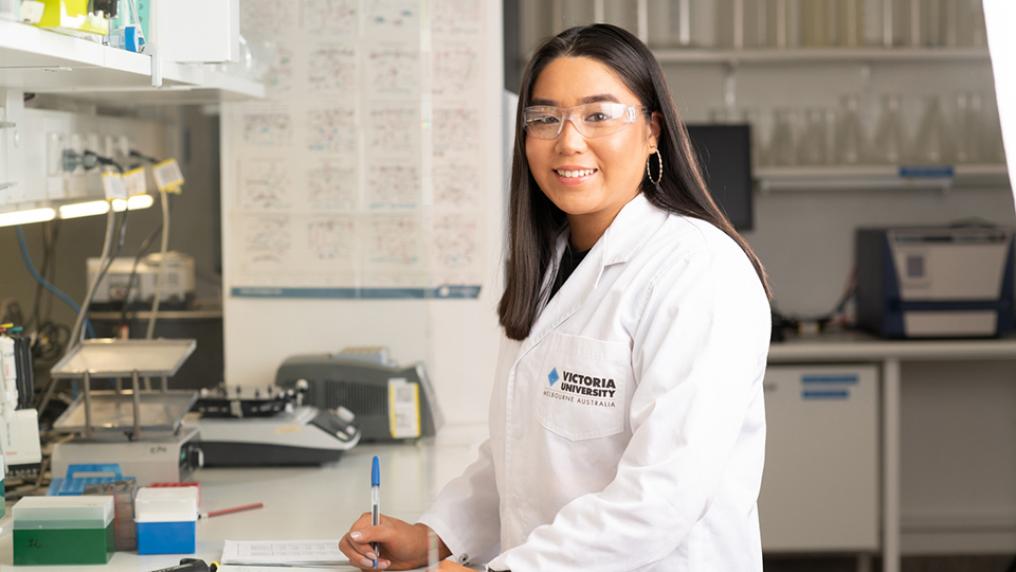Connecting with Country through science

My internship gave confidence and career prospects. It’s so rewarding to know that we’re making a difference to Country and community. I can’t wait to see what the future holds.
Stella
Science student
Stella Rose Lay’s foray into science began as a joyful hobby, and grew into a passion for protecting the planet. After completing a Bachelor of Science, she is now studying for a Master of International Community Development. As a Gamberre (WA) woman, Stella Rose shares how gaining support from VU’s Indigenous Academic Unit, Moondani Balluk gave her extra confidence to achieve her potential.
“Why science? Originally I fell in love with it because I was influenced by my Dad’s passion for geography. I would read everything about it – we’d go to the library and they’d find me tucked away reading an atlas!
“When I became aware of climate change, I decided to make it my mission to contribute to helping Country; conserving the environment for future generations.
“So after school, I enrolled in VU’s Bachelor of Science, with a major in ecology and environmental management.
“From my first year of uni, I felt supported. The teachers from VU First Year College were so helpful. I also connected with
Moondani Balluk Indigenous Academic Unit . I go to them for guidance, and through them I gained an Indigenous women’s scholarship.
“Moondani Balluk referred me to CareerTrackers, a professional internship program for Indigenous students. I completed a 12-week paid internship during the second-year summer break at engineering firm Mott MacDonald.
My previous work had been in retail and hospitality, so my CareerTrackers internship got me real experience in a STEM-related field. It boosted my confidence and career prospects. After graduating, I was able to secure a position as a Project Support Officer at the Department of Energy Environment and Climate Action (DEECA).
“My other passion is sport. I play state-level volleyball and NFL Aussie Rules football.
Life can get full on, but with the VU Block Model, studying is more manageable because we focus on one unit at a time, rather than four (like the traditional model), and three three-hour blocks of classes.
“I thrived on the hands-on lab work and the outdoor field research during my science degree. Going out to regional areas, we contributed to a project that monitors the behaviour of endangered animals.
“Because I'm also passionate about working with the community, I enrolled in the Master of International Community Development after graduating. I've wanted to do this since I was about 11 years old – back then I used to say I wanted to work for the United Nations! I've always wanted to find a way to collaborate with others to create a better future for all.
“It’s so rewarding to know that we’re making a difference to the planet. I can’t wait to see what the future holds.”